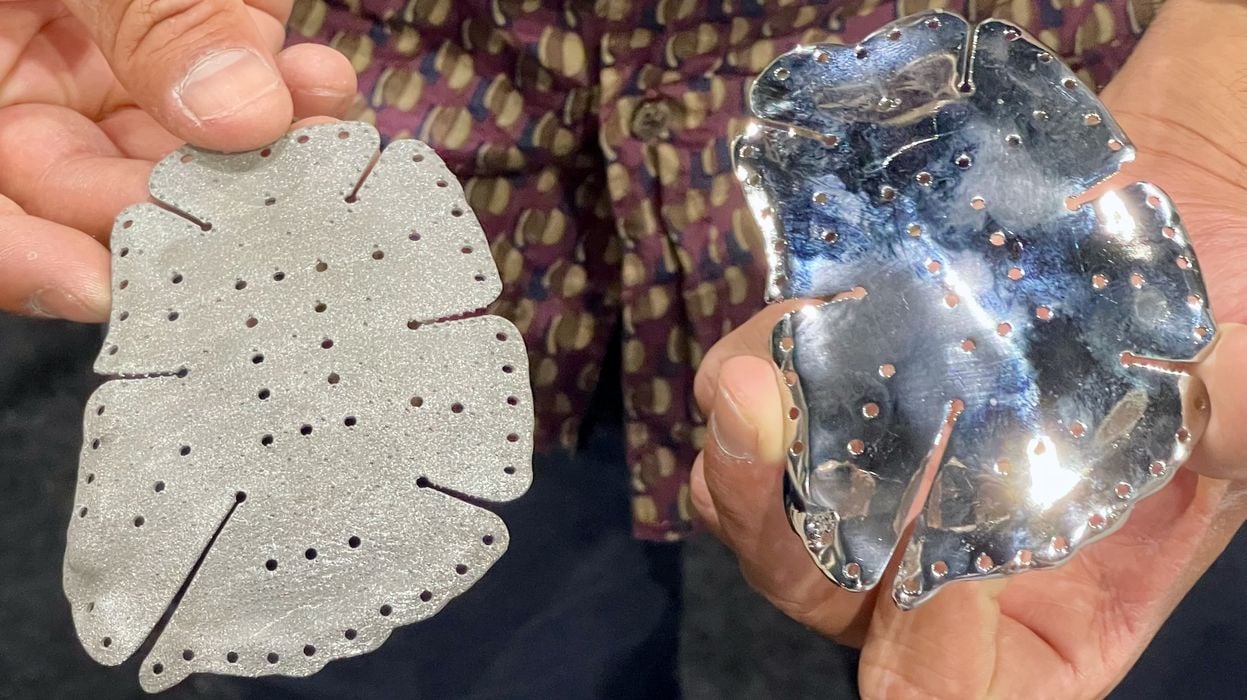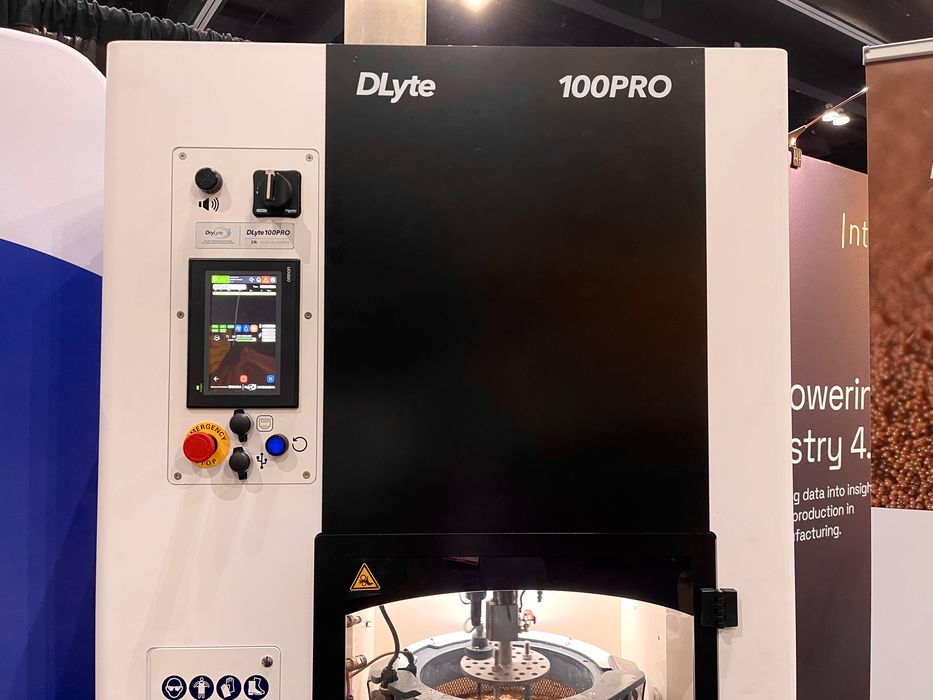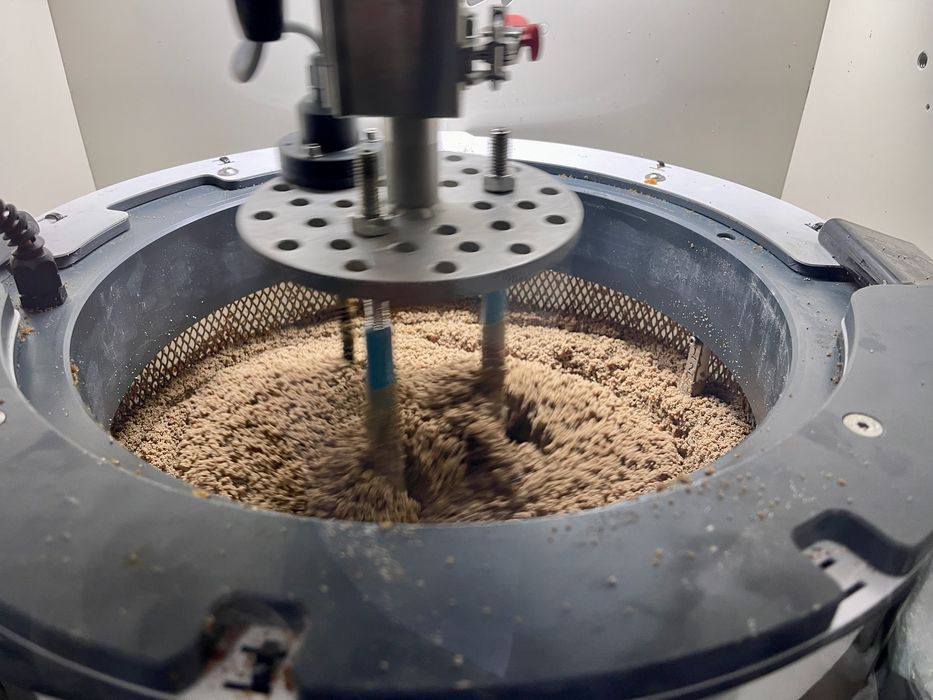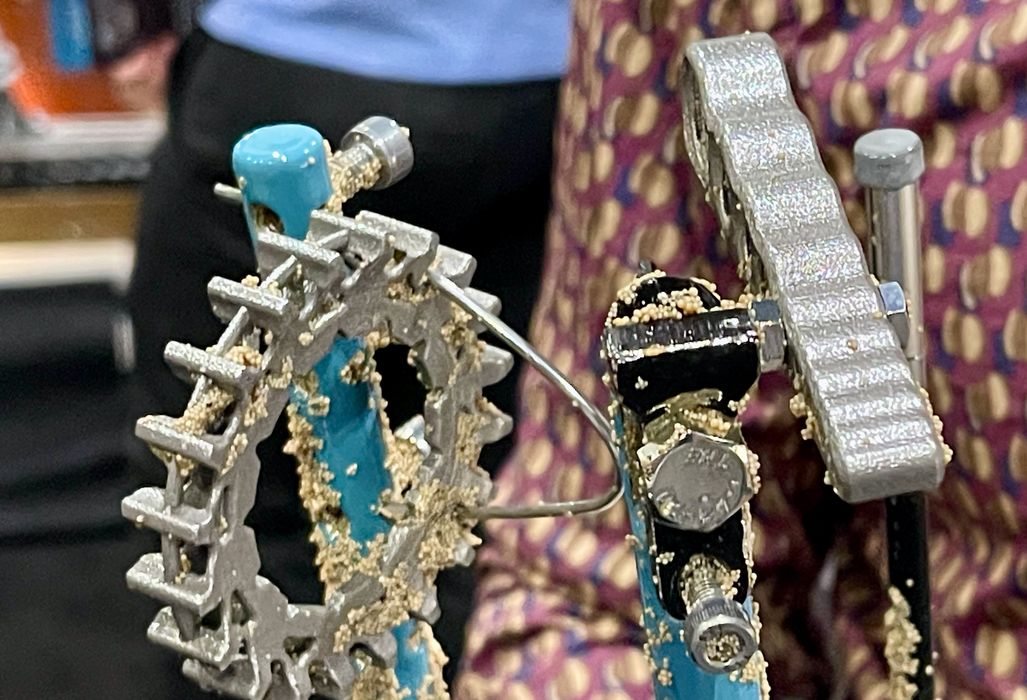
I encountered a very unusual metal post processing system from DLyte.
DLyte is part of GPAINNOVA, a Spanish company. They introduced “DryLyte Technology” metal polishing process back in 2016, but it is now increasingly used by metal 3D printer operators to finish parts.
Polishing metal 3D printed parts is frequently required because the rough surfaces produced by LPBF processes are insufficient for many applications. Normally polishing is done through mechanical means — tumbling or agitating with an appropriate media — but that can produce inconsistent results. That’s not good for production applications where identical parts are always required.

DryLyte is a completely different approach. While the machine seen here looks innocuous from the outside, the magic happens inside.

Here we see the machine in action. Parts are attached to a hanger, which suspends them within the processing bucket. The system raises and lowers the parts into a bead-like material.

What’s going on here? It turns out that the process is quite unusual. It’s a dry electro-chemical smoothing process.
The “beads” are tiny spheres filled with sulfuric acid. The bucket is electrified and acts as a cathode. Meanwhile, the suspended parts are the anode in the electrical connection.
When energy is applied, there’s a tiny electrical arc that breaks through the beads and releases the sulfuric acid. By varying the voltage the operator can precisely control the process: less energy releases less acid, for example.
The DryLyte process is not only accurate and reproducible, but is also very fast. We were told that a machined part can be polished to mirror-level in only 30 minutes!
The powder-based nature of LPBF produces metal parts with very rough surfaces. At top you can see an example of this: a titanium part that was polished perfectly by DryLyte in only two hours. That’s quite a bit faster than would be done in traditional approaches, and provides more consistency.
This approach seems to be one of the best I’ve seen for production polishing of metal 3D printed parts, and could offer new capabilities to metal 3D printer operators that mostly rely on mechanical polishing approaches.
Via DLyte
